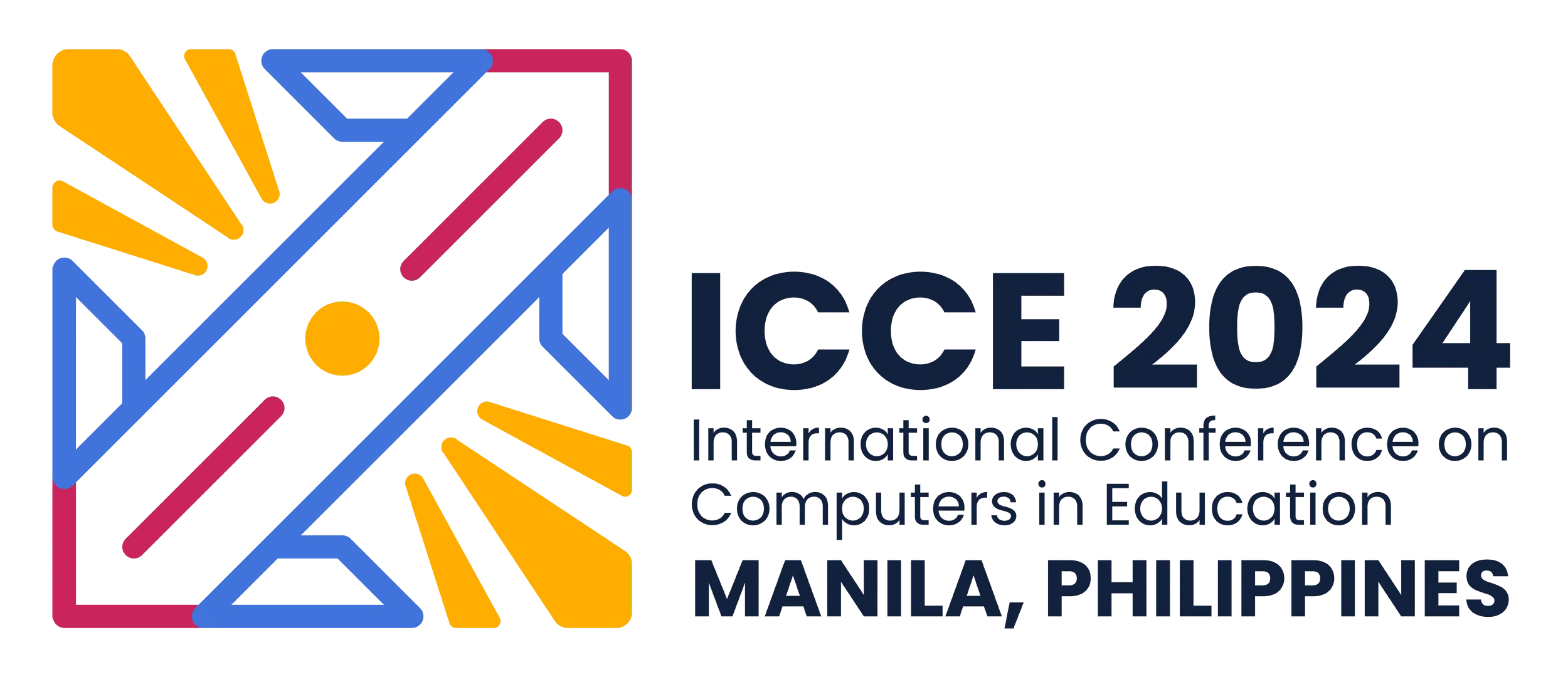Towards the Development of PIA 2.0: A Pedagogical Agent that Exhibits Synthetic Facial Expressions
DOI:
https://doi.org/10.58459/icce.2024.4871Abstract
This study reported the design and development of the initial prototype of a web-based virtual learning environment with a pedagogical agent. The pedagogical agent, named PIA 2.0 (subsequently referred to as PIA), exhibited synthetic facial expressions and body gestures. It could also provide textual feedback, hints, and encouragement messages. Grade 8, 9, and 10 students (n = 30) utilized the initial prototype of PIA. The interactions within the software were collected and analyzed through descriptive statistics and lag sequential analysis. It was revealed that students were engaged in the intervention and had a high probability of solving mathematics problems they were comfortable with, with a very small probability of changing the level of difficulty. These results were utilized to add a feature to PIA by recommending mathematics problems to be solved. The commercialization aspect of the software was also discussed. Conclusions and future research directions were provided.


